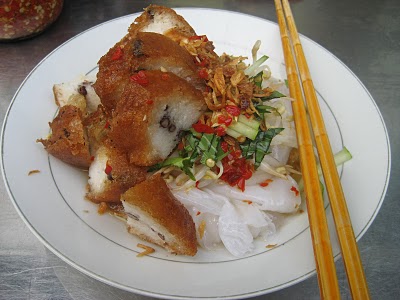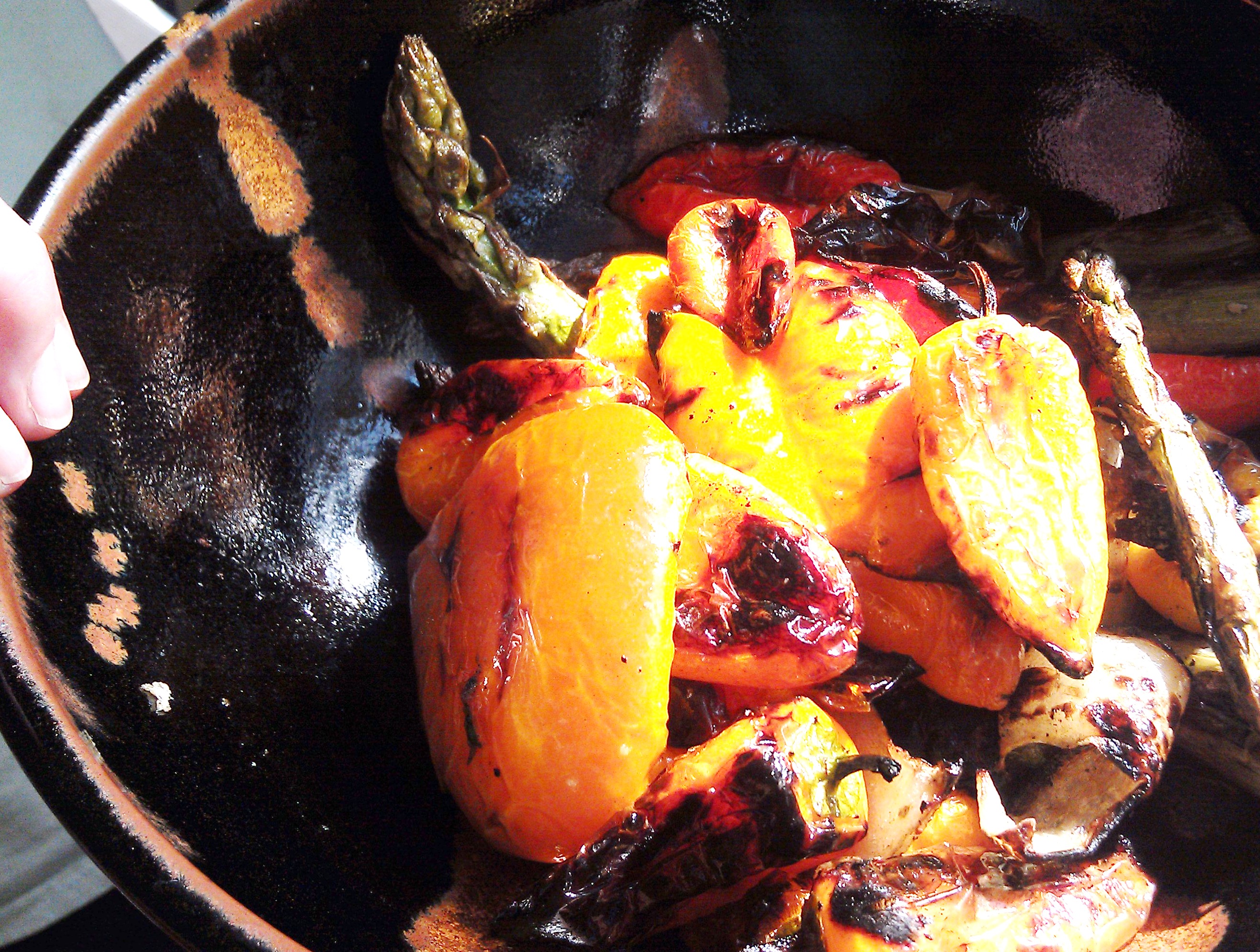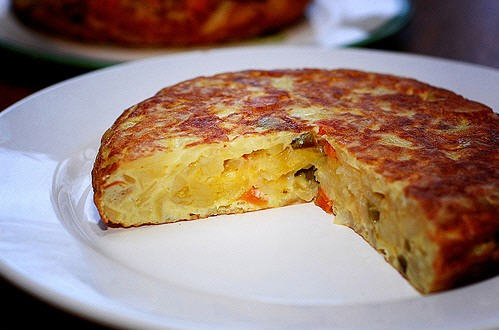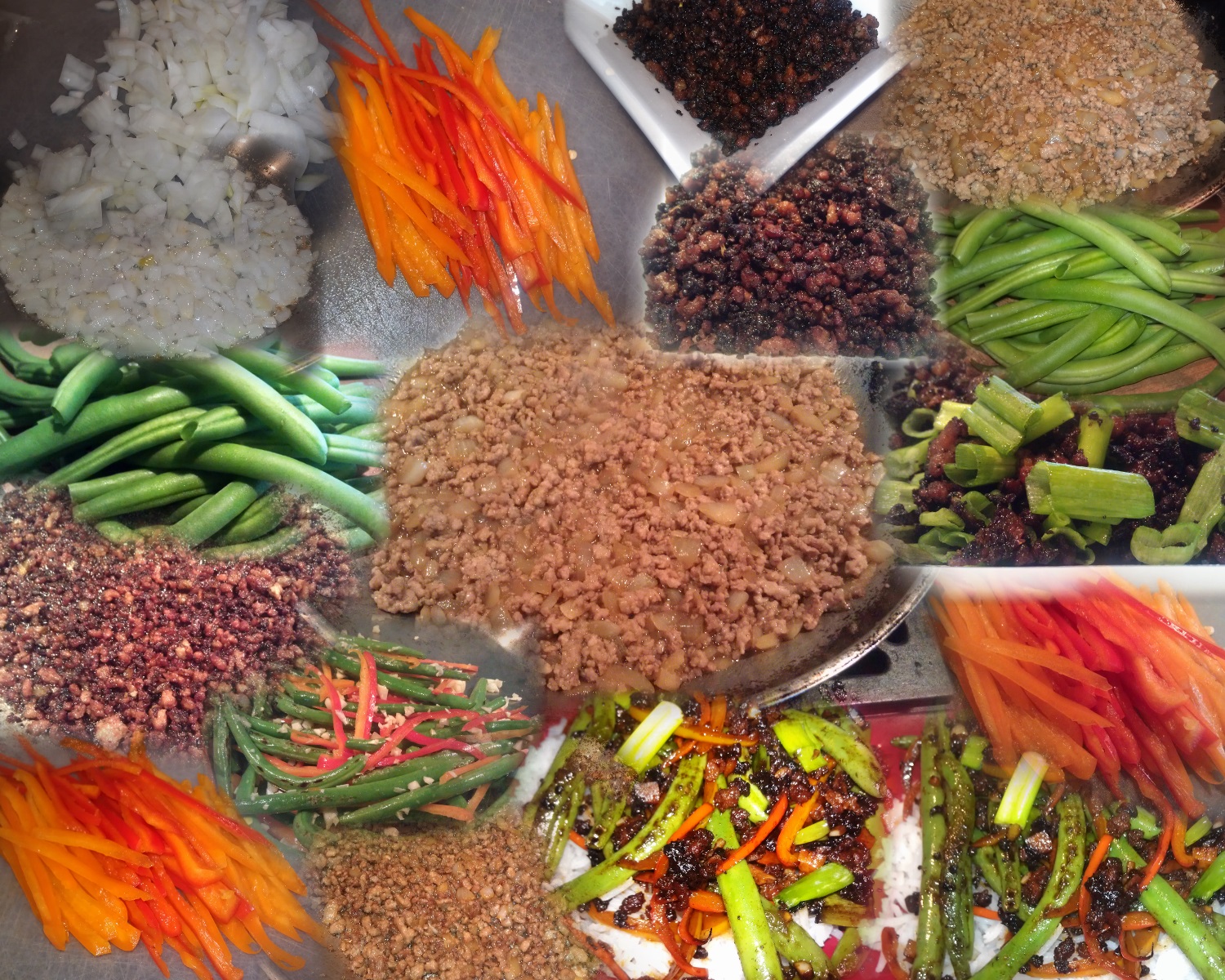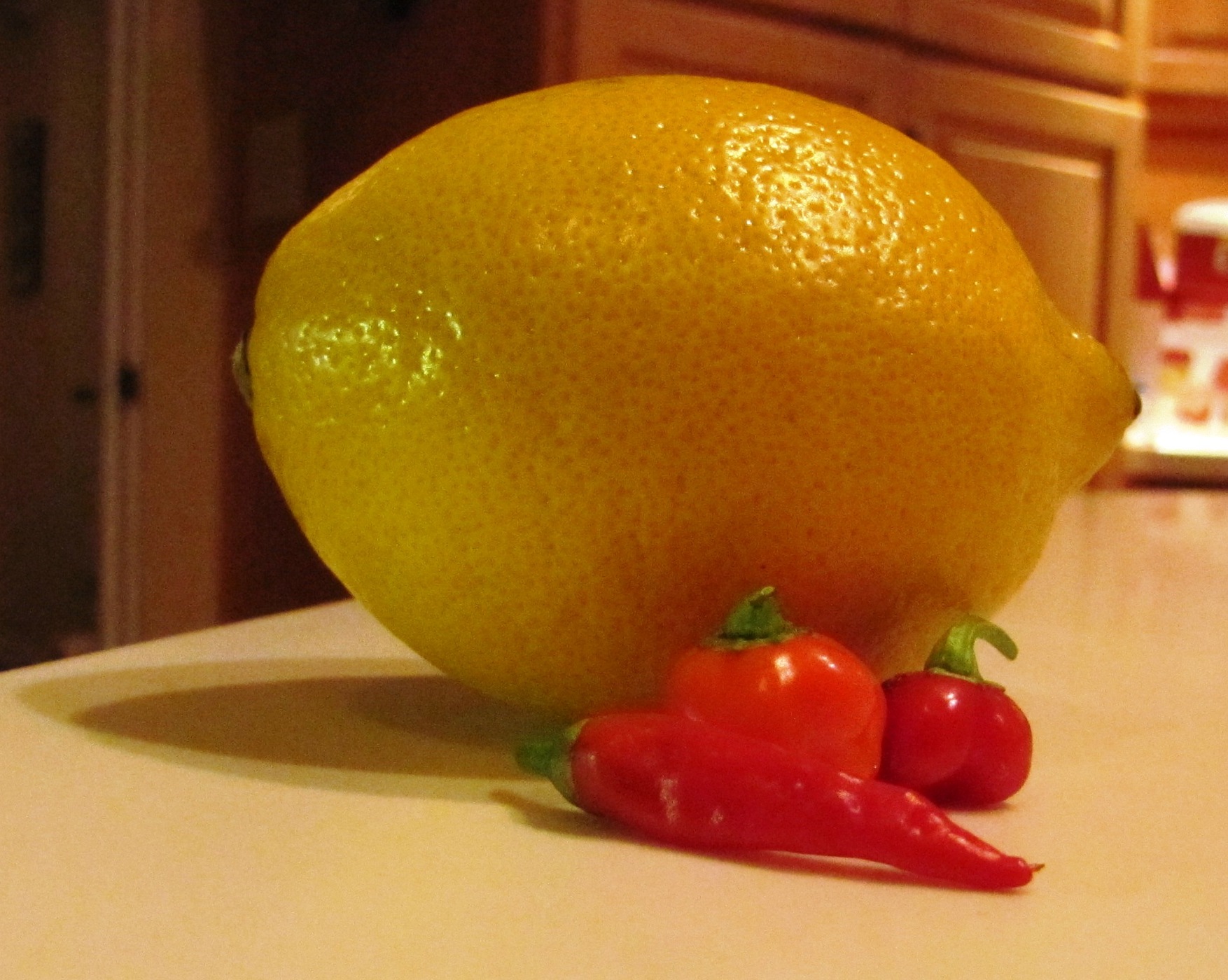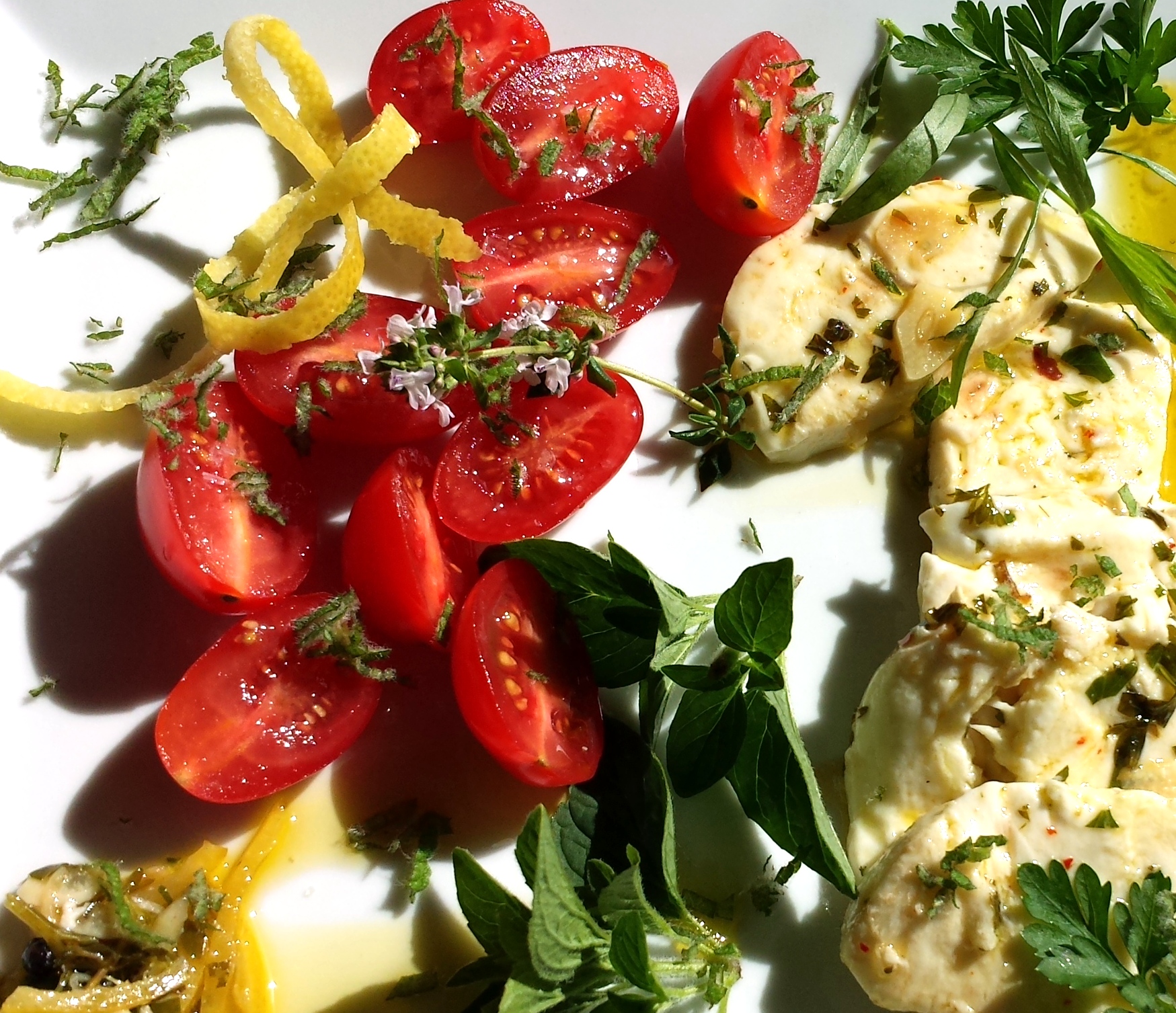Editorial Note: We don’t usually publish stories without a picture of the dish, but felt this story was so engaging that it was time for us to do what we do best – break our own rules! This tale comes from Marjie Bowker, who I met at a cheese-making class. The class was an utter disaster, but meeting Marjie made it all worthwhile.
We loved her story – and the gorgeous recipe that follows. Hopefully, she’ll send us some images of the actual dish (sure, you can find them with, say, a Bing image search, but we’re looking for authenticity here, right? :). Enough. With no further ado, here is:
“Maggie go to Seattle and get fat!”
I hear Thanh proclaim these words joyfully, but they ping-pong painfully around my American brain before I can digest that I’ve just been called “fat” for the first time in my life by someone I love a whole lot.
I had just returned for year two of my teaching contract at the American International School in Ho Chi Minh City. Honestly, though, I was thinking of year two more in terms of food opportunities. Yes, I loved my endlessly sweet sixth grade Language Arts students, but I had become addicted to the neighborhood in which I and my two roommates had landed.
We referred to our five-story stack house with a Romeo and Juliet balcony as our “castle”; it was set at the end of an alley that was part of an extensive morning market that offered fresh fruit, vegetables, squid, shrimp and live frogs along with vendors selling Bánh cuốn nhân thịt (steamed rolls filled with minced pork and mushrooms) and Bánh khọt (tumeric coconut rice cakes topped with shrimp).
Love for a place equals a lot of intangible qualities all tangled up together – for me, love for this place was the way the mornings moved in this ten-block alley grid, the way they smelled, and, of course, the way they tasted.
Acceptance into this community – into their homes, lives, weddings, funerals and Tet celebrations – had come through two women: Thuy and Thanh, who ran the fabric stand in the middle of the market. Each morning, they assembled a wooden frame outs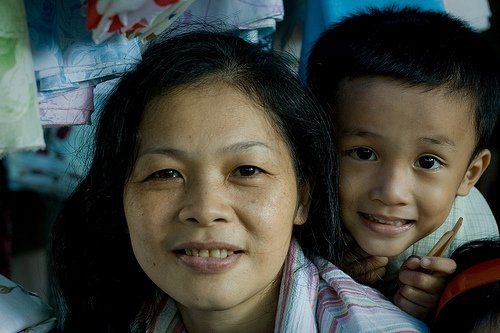 ide of their tiny two-story home to hold layer upon layer of cloth from Thailand to sell by the meter.
ide of their tiny two-story home to hold layer upon layer of cloth from Thailand to sell by the meter.
They had befriended me from the beginning, and despite our lack of a common language, they made it clear that they were my friends while I was in Vietnam. They began to call me their sister, and every Sunday morning one of them would abandon the stand for fifteen minutes so we could shop for fish and vegetables to cook when they closed their stand at noon.
The first week I was back, Thuy and Thanh were over at our castle cooking with my roommate, Katherine, and me for our Sunday feast. Thuy was mashing up white fish, molding it around huge Vietnamese shrimp, dipping them in egg and flour, and frying them in oil. Thanh was frying long, slender eggplants to stuff with a pork and onion mixture.
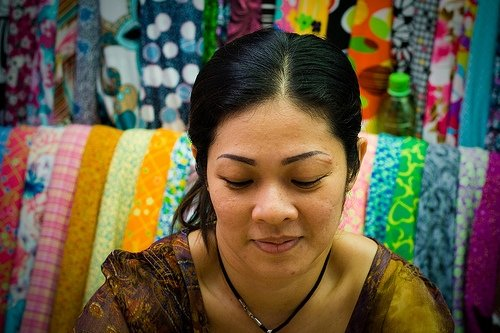 Katherine and I were both so happy to be back cooking with our Vietnamese sisters, drooling over the greasy treats being prepared in front of us.
Katherine and I were both so happy to be back cooking with our Vietnamese sisters, drooling over the greasy treats being prepared in front of us.
In the midst of feeling this happiness Thanh giggled, glanced at my bulging-from-summer-vacation waistline, and made a “wide” gesture with both hands, saying, “Maggie go to Seattle and get fat!”
Read that comment again. Let it sink into your American, westernized psyches.
This was not a new thing for me or Katherine. Not only were we Amazons in this country and especially in this non-foreigner neighborhood (I am 5’8” and Katherine is 6’0”), but every time we gained a little weight, someone was sure to let us know it.
Just a few days earlier, when the seamstress (“Sweet Seamstress”) two doors down from the castle laid eyes on me-and-my-extra-pounds back from summer break, she said “Hi Maggie!”, looked at my waist and then made a wide gesture with both hands. Then she came over and touched my stomach. Last year, our housekeeper made the same gestures to Katherine. As for our students, they were not at all trained to hide exclamations like “Truong is so fat!”
After the “housekeeper incident”, Katherine and I debriefed extensively on this cultural conundrum. She suggested that we should just burst into tears the next time it happens, to get our own cultural message across.
When Sweet Seamstress made the gesture and touched my stomach, I just laughed and said, “Yes, America!” as in, “Yes, I come from a culture of fat. I went home and my culture made me fat. Your culture does not make you or me fat.”
But Thanh? Somehow I thought that Thanh, my “sister,” would have somehow ingested and come to understand our cultural values out of her pure love for us. Surely she wouldn’t be capable of hurting either of us on this level. But the words had been spoken, and the gesture had been made.
Katherine jumped to my defense. “That’s a mean thing to say in our country. That makes us feel sad.” However, the only thing her scolding produced was uncontrollable laughter out of both Thuy and Thanh. It felt awful. Suddenly, I empathized with every fat kid, everywhere.
After much analysis, this is what Katherine and I came up with regarding this topic: their way is probably better. Just like the honking of the Saigon motorbikes stating “I am here” is anything but mean, Thanh’s comment was a statement of truth and was not at all loaded.
Thanh is anything but mean. She is lovely and giving and has sat by our side through sicknesses. And she is truthful.
The Vietnamese culture does not encourage you to eat more, more, more. Their portion sizes are reasonable. There is no such thing as Super Sizing anything. Even Cokes are regular sized…nothing giant exists. Ice cream bars are little and there are no ice cream shops where you can order three scoops in a waffle cone. Yes, their way is better.
But you know what? Even though I can see all of this culturally and objectively, I do hold it against them, someplace where I can’t get rid of it. That statement has been tagged as one of the meanest statements in our culture of fat. We Americans can tell it like it is in so many situations, but in that one, we remain quiet liars.
So, how did I respond? That night I was silent and melancholy. Thuy and Thanh ask me if I was “sad.”
“Just tired,” I answer. And I eat way less of the stuffed eggplant and greasy shrimp (which are extremely delicious) than I would have, otherwise.
But then I go on to respond in another way: by losing those extra *&^% pounds within about ten days (after signing up at the most expensive gym in Ho Chi Minh City).
If you think getting on a weight scale is motivation for keeping your weight down, try having a Sweet Seamstress three doors down who makes a wide gesture with her hands if you gain a few pounds, or have your Vietnamese sister point at you and laugh as she calls you “fat.” That, I’m telling you, is a much better incentive to keep yourself in line.
And it’s also free.
The Recipe
Vietnamese Stuffed Eggplant with Nuoc Cham and Crispy Fried Shallots
This recipe will make four servings. Begin by making the nuoc cham (dipping sauce) and set it aside while you prepare the eggplants.
Basic Vietnamese Dipping Sauce Recipe (Nuoc Cham)
I spent Sunday after Sunday trying to “measure” Thuy and Thanh’s Nuoc Cham ingredients. They threw it together so quickly, though, that I could hardly keep up with them, but I have tested and tested until I came up with a very close copy. This dipping sauce is essential to all Vietnamese cooking – it is poured over and dipped into with just about everything and is used to bring all sweet, sour, salty and spicy elements together.
This recipe makes ¾ cup
- 3 tablespoons lime juice (1 fat, thin skinned lime)
- 2 tablespoons sugar
- ½ cup water
- 2 ½ tablespoons fish sauce (Viet Huong’s Five Crabs is my favorite)
Optional additions:
- 1 small garlic clove, finely minced
- 1 or 2 Thai chilis, thinly sliced or 1 teaspoon chili garlic sauce
1. Make limeade. Heat the water and then add sugar and lime juice, stirring to dissolve the sugar. This is like a simple syrup made with lime
2. Add the fish sauce and any of the optional ingredients. Taste again and adjust the flavors to your liking, balancing out the sour, sweet, salty and spicy.
Note: Advance Preparation – This sauce may be prepared early in the day and left to sit at room temperature.
Vietnamese Stuffed Eggplants
Ingredients
- ¼ lb ground pork
- I small onion, minced
- 1 tsp vinegar
- ½ tsp. salt, or to taste
- 4 long, slender Japanese eggplants, tops peeled
- 2 T peanut oil
- 4 shallots, thinly sliced and dried on a paper towel
- 1 T peanut oil
Preparation
- Heat the 2 T of peanut oil in a large, shallow pan over medium-high heat. Add eggplants (you may need to cut them in half if they are really long so they will fit) and fry them, turning often, until they are completely soft in the center. This will take between 10-12 minutes, depending on the eggplants, and they will most likely char on the outside.
- While the eggplants are cooking, mix the ground pork, onion, vinegar and salt.
- When the eggplants are soft, you should be able to slit them down the middle with a sharp knife to create an opening pouch for the pork mixture. Round it out with a large spoon.
- Spoon ¼ of the mixture into each eggplant and press down. Lower the heat and simmer until pork is cooked through, about 7 minutes. The eggplants will caramelize with some of the juice from the pork mixture.
- While the stuffed eggplants are simmering, heat another 1 T of oil in a small pan over medium heat and add the dried shallot slivers. Brown them until they are light and crispy, then drain them on paper towel.
Serving
Serve stuffed eggplants over a mound of jasmine rice, pour a ladle full of nuoc cham over the top, and sprinkle with crispy shallots. Don’t be shy about adding more sauce…this dish is best swimming in it in my opinion! Enjoy~
About the Author
Marjorie Bowker is (usually) a high school English teacher in the Edmonds, WA. School District. You can find more of her stories about Vietnam at http://marjiebowker.blogspot.com/.



